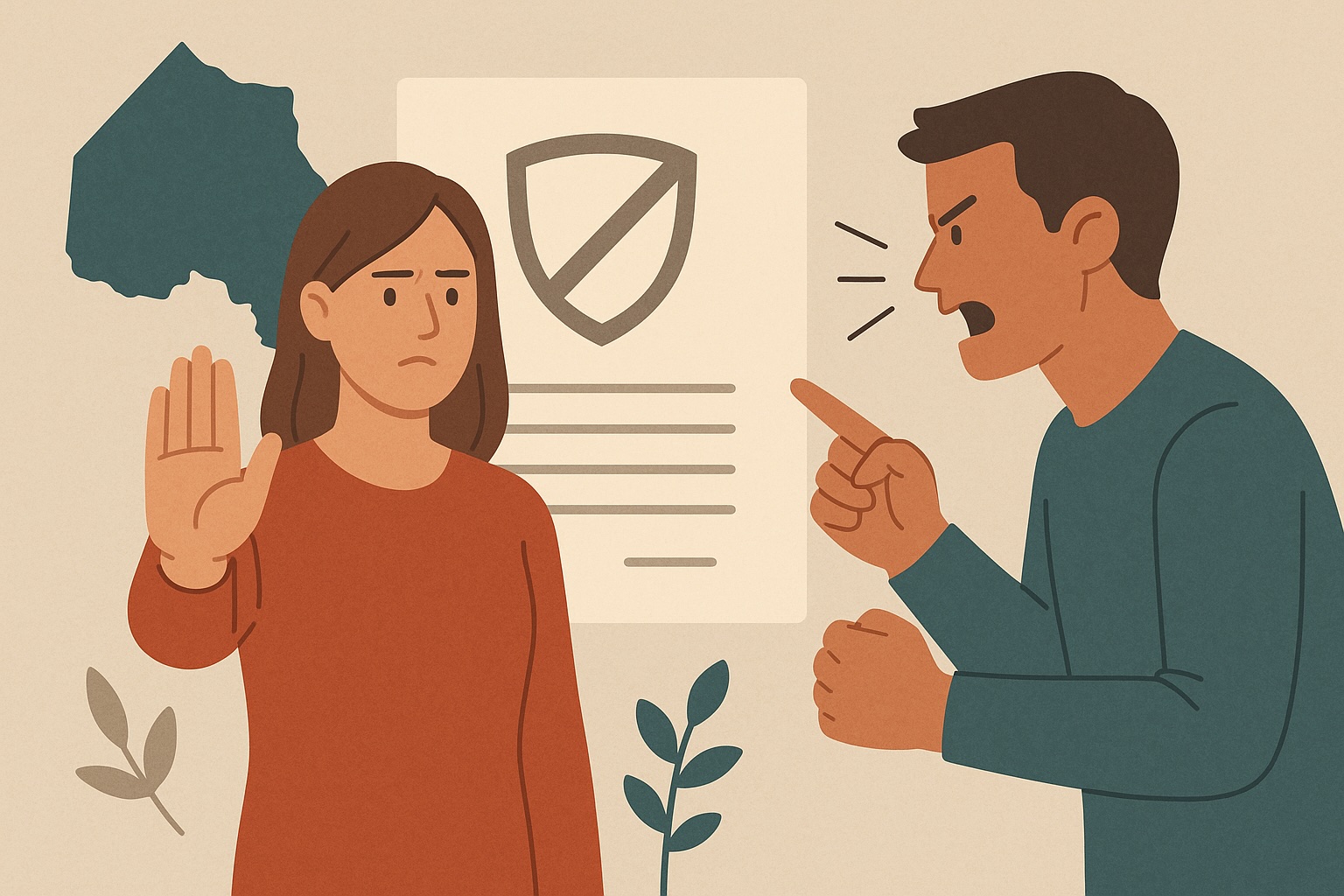What Does a Restraining Order Cover in Ontario?
Wondering what a restraining order in Ontario can legally enforce? Learn what protections are included—like no contact, distance restrictions, and more—so you can stay safe and informed.

🔒 What Does a Restraining Order Cover in Ontario?
A restraining order is more than just a legal form—it's a tool to protect you from unwanted contact and harassment. Whether you're applying through family court or civil court using Form 9C, a restraining order in Ontario can set legally binding boundaries that, if broken, may lead to arrest.
Let’s break down what protections you can request and how they are enforced.
🛑 Key Protections a Restraining Order Can Provide
1. No Contact Clause
The most common restriction:
No calling, texting, emailing, or messaging on social media
No communication through third parties
2. Stay-Away Clause
The respondent may be legally required to:
Stay a certain distance away from your home, workplace, or school
Avoid places you frequent (e.g., daycare, gym, family home)
📏 Most orders specify distances like 100 or 500 meters.
3. No Harassment or Stalking
Restraining orders can prohibit:
Following you
Watching you from a distance
Showing up uninvited
4. Firearm Restrictions
In some cases, the judge may order the respondent to:
Surrender any firearms or weapons
Not apply for or renew a firearms license
5. Additional Conditions (Optional)
The court can include unique clauses, such as:
Not attending joint children’s events
Refraining from posting about you on social media
Not contacting your employer, family, or landlord
📌 Who Decides What the Order Covers?
The judge will decide based on:
Your written request (especially if using Form 9C)
The evidence of harassment or threats
What is reasonable to ensure your safety
🔁 Can You Modify a Restraining Order?
Yes. If circumstances change (e.g., you move, or the respondent changes jobs), you can apply to:
Change the order (Form 15 for family court)
Extend or renew it before it expires
⚠️ What If the Restraining Order is Breached?
Violating a restraining order is serious:
Police can arrest the respondent immediately
It becomes a criminal offence
You may press charges and request stricter conditions
🧠 Summary: What a Restraining Order Covers
Protection Type
Description
No Contact
No direct or indirect communication
Distance Limit
Must stay a specific distance away from you or certain locations
Behavior Restrictions
No stalking, harassment, or surveillance
Firearm Restrictions
May be required to surrender weapons
Custom Conditions
Court can include specific restrictions to suit your case
📞 Need Help Filing?
Legal Aid Ontario – 1-800-668-8258
Victim Services – Free support in most cities
Duty Counsel – Available at family and criminal courthouses
Here are the updated versions of each blog post with direct links to relevant Ontario court forms added in the appropriate sections:
🧾 Legal Form:➡️ Form 9C – Application for Non-Family Court Order (PDF)Ensure you clearly list the conditions you are requesting (e.g., distance limits, no contact, firearm restrictions).
Frequently Asked Questions (FAQs)
1. What is the most common condition in an Ontario restraining order?
The most common and fundamental condition is a no-contact clause. This is the core of the order, making it illegal for the other person to communicate with you directly or indirectly.
2. How far away does a "stay-away" order force someone to be?
The specific distance is set by the judge based on your circumstances. Common distances are 100, 200, or 500 metres from protected locations like your home, work, or your child's school.
3. Can a restraining order stop someone from posting about me on social media?
Yes. You can specifically ask the judge to include a condition that prohibits the other person from posting anything about you, or photos of you, on any social media platform. This is becoming a more common and important term in the digital age.
4. Does a restraining order mean the person has a criminal record?
A restraining order itself is a civil or family court matter, not a criminal conviction. However, breaching a restraining order is a criminal offence. If the person violates the order, they can be arrested and charged, which would then result in a criminal record if they are found guilty.
5. Can a restraining order protect my children as well?
Absolutely. In family court, you can request that the restraining order's protections, such as the no-contact and stay-away clauses, apply to your children as well, ensuring their safety is legally protected.
6. Are the conditions of a restraining order permanent?
Not necessarily. A judge can grant a temporary or a final restraining order. A final order can be for a specific period (e.g., one or three years) or it can be made permanent. The duration will be clearly stated in the order itself.
